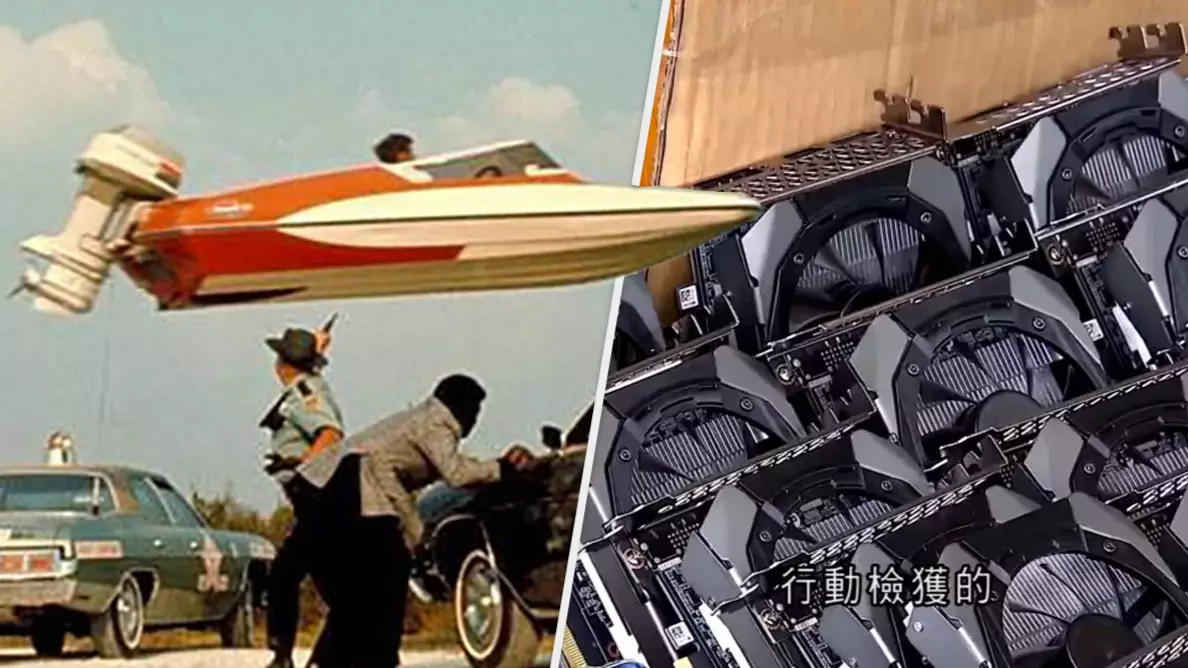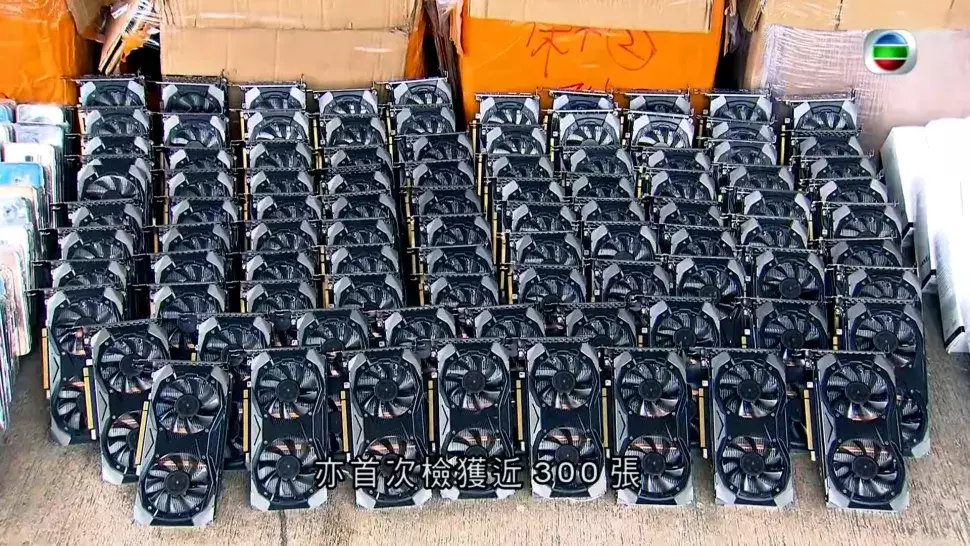
Earlier this month, a group of smugglers were planning on selling 300 NVIDIA CMP 30HX graphics cards to cryptocurrency farms in China, but the police caught wind of their schemes and raided the $250,000 haul.
This is sort of a wild story, seeing as graphics cards are not contraband. However, there's an extreme shortage of the products right now, owing to the wider scarcity of semiconductors, which is affecting companies from Apple to Sony. As a result, cryptocurrency miners can't be choosers, and although the CMP 30HX isn't brilliant at mining Ethereum, they'll take any chance they can to get ahead of the game. According to the report from TVB News (thanks, Tom's Hardware), the graphics cards were buried among exotic foods like sea cucumbers and shark fins, along with other pricey products like smartphones and computer peripherals.
On April 3rd, the Hong Kong Customs and Excise Department had spotted a fishing boat that was acting suspiciously, anchored near the Hong Kong International Airport. Watching closely, the police saw that a group of people arrived at two o'clock in the morning to remove boxes from the fishing boat and bring them to a speedboat. They made their move, and in the panic, the smugglers started up the speedboat and tried to hightail it out of there. A chase ensued, and the group managed to escape, but the officers did take the owner of the fishing boat into custody.
Advert

The overall haul of the graphics cards and the other assembly of bits and bobs came to a total of $2 million Hong Kong dollars (which is about $257,000 in US dollars). Speed is the key regarding mining cryptocurrency, because in order to generate "blocks" of verified transactions in the blockchain and be entitled to Bitcoin, the user must be the first to complete a numerical problem. These aren't simple calculations, and asking a human being to continuously work these out is simply not feasible. That's why the miners "outsource" the calculations to incredibly powerful computers, and the race is never more pressing than it is right now. The block reward for mining new bitcoin and building the chain halves every four years. In fact, the finite total of Bitcoin is 21 million, and as of February, there is 18,361,438 Bitcoin in circulation. Best hop to it to soak up that remaining 2,638,562 million, then.
Featured Image Credit: Eon Productions, TVB NewsTopics: News